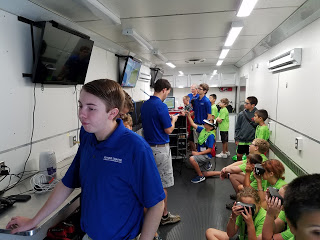Those platforms that we use to save our passwords, documents or media have advanced greatly, and are providing services that are achieved for the first time. So, along with the nowadays-known advancement of technologies and social media platforms, some security concerns must be kept in mind, because we all want to maintain the privacy of our information.
So, we have 10 easy ways that strongly help make your online accounts more secure and private:
1. Use a password manager.
The most important step towards a safe, web-secure experience is to keep your passwords somewhere safe, and that’s not putting your passwords on sticky notes on your desk, refrigerator, etc. One of the best places to save your passwords is a password manager, which saves your various online-login credentials, rather than having to remember all of them or using the same password for all your logins. Also, most password managers can generate very secure random passwords for you.
2. Regularly check your account activity.
Many websites or social platforms offer a feature of tracking activity on an account. Checking and making sure everything looks normal can really help you detect suspicious activity.
3. Change your passwords in regular time intervals.
As it is recommended to use a password manager, you are good for this step. For those who don’t, it is an important step to change all your passwords on a regular basis (Hint: Don’t change it many times in a short period of time, 90 days period is recommended). Never say “I don’t care if this account is hacked or not, I don’t use it”. That one account may help hackers to get access to other accounts or information of yours.
4. Create a separate e-mail address for social media.
It is not hard to know what e-mail you use at school, at work or personally, anybody can get to know that easily. For you own benefit, make a secret e-mail address (Hint: Do not include your name) and use it only to login to your various social media accounts.
5. Lost your phone?
The phones we all own are one place we do most of our life activities on, schedule an interview, call our family or access mobile banking, etc. So, it would be a critical issue if we lose them. To make sure your personal information does not get into the wrong hands, you can set “remote wipe capabilities” (How to instructions below) to wipe all personal information on your phone if you lose it. Also, make sure you perform the same action before selling your phone.
6. Be careful what you post online.
When posting online, we see many people post personal information of themselves, which can lead someone to get your bank account, credit card, etc. Make sure you don’t put information like home address, your birthday or even the football team you support. Those are a verification of your identity and can be used against you.
7. Close unused accounts.
Accounts that are not used and kept up with strong passwords are at greater risk to be hacked. It is not a problem if it was just that, but they might lead hackers to other accounts that you do care about. (Hint: That’s even less passwords and usernames to worry about).
8. Password reset protection.
Let’s say one of your e-mails gets hacked. Then, it’s much easier to hackers to get to the rest of your accounts, but that is stoppable if you do one thing. Some systems offer the option of requiring personal information/security questions to reset account passwords to help make your account more secure. All you must do is checking the box “Require personal information to reset my password” under Account.
9. Keep the software updated
You are much more vulnerable to hackers if your software is outdated. So, it is best to be up to date and have those new protection features that give you more protection to new hacking methods.
10. Be careful what you trust online.
Use caution when you are connected to the internet. Always be careful when you get a message on social media or an e-mail from someone you don’t know. (Hint: you are never going to win $10,000 through your e-mail from the government). Just think before you click!
- Ahmad Alaliwi





